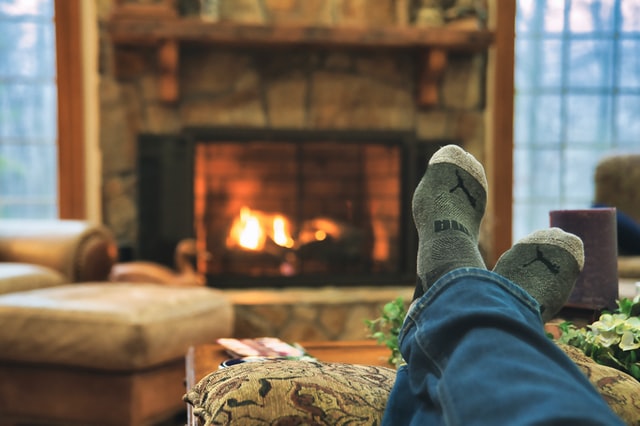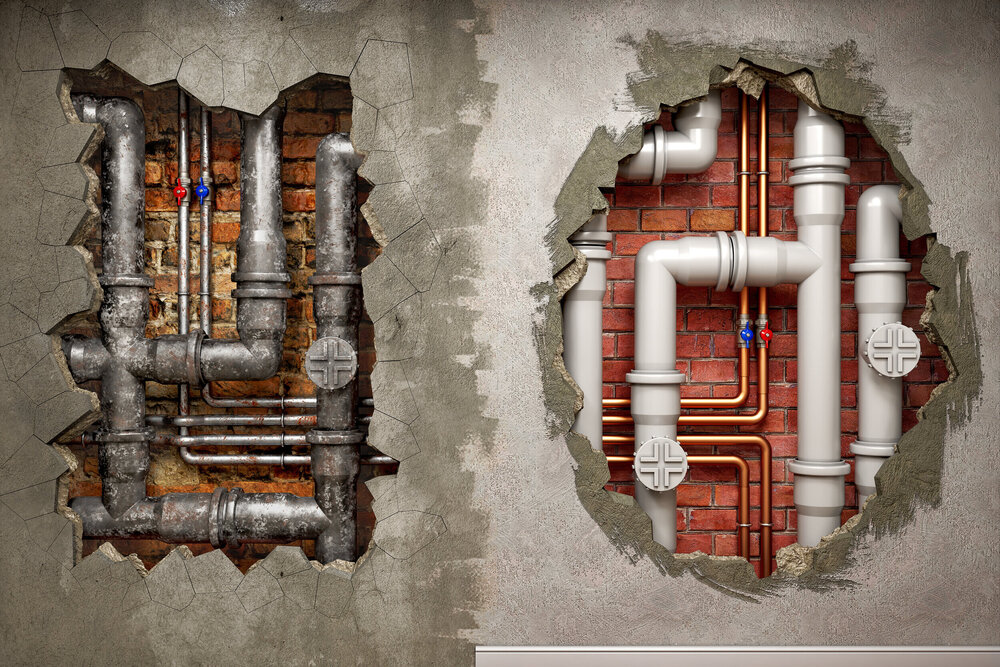How To Winterize A House
Winter colds cause serious damage to many homes every year, and while people usually consider these damages unavoidable, there are plenty of ways to prevent them.
If you don’t act in time, it can cost you a lot of money in terms of insurance premiums and energy bills, even though the majority of these costs could be avoided by good planning and effective preventive measures in terms of winterproofing your home. Not to mention the inconveniences any minor problem in the heating system can cause, with the worst-case scenario, of course, being left without heating.
What Is Winterization
Winterization is the process of preparing a home to survive the harsh climatic conditions of the winter season without taking any severe damage. Winterization (Winterproofing) in Washington is usually done in the fall season before the heavy snowing and excessive cold climate. Winterization can help you to prevent any unwanted damage to the property. It can prevent damage such as frozen pipes, gas leaks, etc.
Plan Your Winterization
To avoid missing any essential steps and overspending, create a winterization plan. It is recommended that you make a checklist for the tasks that you want to perform while winterizing your home.
- Walk around your house to note and make a list of tasks you need to do inside.
- You can also go outside of your house, check your backyard, and view any prior things that need to be done to protect your house from outside.
- Create a detailed list of the essential materials you require.
- Check and differentiate the tasks that you can do by yourself and the ones that you will outsource to a contractor.
- Divide the tasks into days and start with the easiest and the most comfortable ones first.
How To Winterize A House Effectively
We have gathered a list of 10 tips for winterproofing your house perfectly so you can enjoy your winter vacations peacefully.
Save House Wall & Exterior
While starting winterizing your home, the first and one of the most important measurements you have to make is to make sure that the water from the rain or melting snow doesn’t reach the structure itself by leaking through the exterior sheathing, and if it somehow would, that it will be able to escape from there.
Check around the house for any potential cracks in the walls, especially if you have creeper plants growing up on the walls. These plants can cause miniature cracks that will start to get bigger once the water in them freezes. Pay particular attention to the area of the windows and doors, and keep snow off these areas since they are the most vulnerable parts of your house.
The Roof
Check for loose tiles, and if you find any, replace or repair them as soon as possible. Also, take a good look at the guttering, especially at its ends, where fallen leaves can accumulate and block the water’s flow. Remove bigger icicles as frequently as possible.
If you have trees next to your house, check if their branches pose a threat to the roof should they fall off. Half-frozen raindrops can freeze quickly to form thick layers of ice on trees, and their weight can easily cause the branches to break off. If the tree belongs to your neighbor, you should ask them before starting to sculpt it to keep the relations intact.
If the relations are already a bit off, just chop the branches off, you have every right to do it as long as they are hanging over your territory.
Protect The Pipes & Taps
Maybe the most frequent problem in the cold months is the freezing of the pipes. First of all, make sure that none of your taps are dripping and that they are joined properly.
Also, check the lagging on all of your pipes, especially those that are found in areas that remain unheated during the winter months (the loft is a good example).
Also, check if your pipes have any leaks. A particular way of doing this is by turning off all faucets and valves before checking the water meter (which indicates how many cubic feet you are at). Wait two or three hours and then check again.
If the number went up, you most definitely have a leak that is not to be taken lightly. Even the smallest leak can turn into Niagara Falls in the blink of an eye, so it is warmly advised that you ask for professional help if you experience any amount of leakage.
Making and checking your plumbing systems all around your house is a good idea for winterizing your house, and for that, you may need a professional plumber’s help.
Check The Gutters
Prevent your gutter from freezing with ice dams by cleaning before time. If the gutters are not cleaned and are clogged even after the arrival of winter then it will result in overflow and will freeze the ground. This can also result in freezing the water draining. To prevent this you can test the gutter and remove clogs messing up inside and install gutter heat tape.
Protect the Attic Floor
Make sure your attic floor is protected and insulated properly. You need to inspect the attic during daylight hours and during rain, paying attention not only to obvious cracks and smudges but also to the presence of condensation and mold in the corners or joints. Attic floors, also called loft floors, are ventilated and about 10 degrees warmer than the temperature outside.
Seal Doors & Windows
Cracks in windows & doors can make a clear way for cold breezing winds into your house, which makes it an important issue to be fixed ASAP. You can use caulk around the exterior perimeter of windows. Windows caulking is an easy and cheap fix and should be considered the first job while winterizing a house.
You can also caulk leaks and holes around air conditioners, mail chutes, and places from where you can prevent the cold air from coming inside.
Keep The Ground Dry & Rough
Keep the paths to your house and sidewalks clear of ice and snow and fix any issues with the steps and handrails. You can use salt from your kitchen and sprinkle it on the steps, sidewalks, path to your house and driveways, and on handrails.
Adjust Your Thermostat
Cold temperatures can freeze the house water pipes and stop the water supply. To prevent it, thermostats can be used as a great repellent to save your house from cold weather and work as an effective asset to winterize your home. You can set a programmable thermostat at the lowest temperature which will keep the water pipes warm. Setting the thermostat at 50 to 55 degrees Fahrenheit can save your pipe from freezing damage and also keep your house at a mild temperature with warm air.
Shut Off The Water At The Main Valve
Shutting off the main water valve is a task included in the house’s winterproofing process. It will prevent any pressurized water from coming to your house. If you cannot find the main water shut-off valve in your house or don’t know how to turn it off, then you can read our how to turn off the main water shut-off valve guide article, or you can call Fischer plumbing professionals.
If you’re not sure where it is or how to shut off the water, you should call a professional for help. Usually, there is a single “handle” that you turn to shut off the main. This eliminates unwanted pressurized water from entering your home. However, as noted, it’s best to call in a professional if you are unsure.
Check Or Unplug Your Electrical Appliances
Before going out for holidays, it is a must to check the electrical appliances and unplug the unwanted ones to keep your house safe and save your money from the high amount of electricity bills. Check the boilers, chimneys & furnaces for any issues; these assets should be serviced at least once a year to clear any buildup and to keep them running efficiently.
Winterize Your Home With Professional Help
With this winterization article, you will be able to cover almost all the things that will help you save your house from cold weather. In some circumstances, things will be difficult to handle or you will lack knowledge. If this happens, then calling a professional plumber will be the right choice.
Nobody wants his or her home to be soaked in the middle of the winter, especially not by the pipes of the heating system, so it is not a bad idea to ask for professional advice even before the winter kicks in, especially if you haven’t got much experience in dealing with the winters cold as the howl of the wolf.

Call The Professionals
Call Fischer Plumbing Right Away And Get The Best Sewer Line Repair Service At Your Doorstep.




